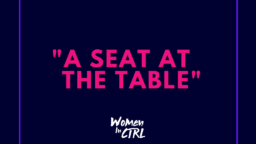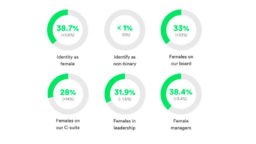There’s been a lot of discussion over the past year about the lack of diversity in the music industry, and tackling the problem at recruitment stage is one measure businesses can take to ensure future generations of leaders in the music business don’t all look the same.
As Kieron Faller (pictured), GM of digital music delivery company CI, explained at The Great Escape festival in Brighton last week, not only is recruiting from a wide range of people the right thing to do, it’s also better for business.
“It has been proven in academic research that diverse teams get you better performance. This is not charity, this is better business. You get better results by having a diverse team.”
Kieron faller, ci
“It has been proven in academic research that diverse teams get you better performance,” he said. “This is not charity, this is better business. You get better results by having a diverse team.”
At CI, Faller has adopted a recruitment processes that’s resulted in his relatively diverse team, which is 50% female, represents six nationalities, and is 40% non-white.
Faller got most of his ideas from Laszlo Bock, SVP of People Operations at Google. Bock has written a book called WORK RULES!, which Faller highly recommends (putting aside the section on pay).
The conscious thinking about diversity needs to happen at the sourcing and shortlisting stages of recruitment, said Faller.
Ensuring applicants come from a range of backgrounds can be done by advertising roles in a number of different places (like GRM Daily, for example, as well as the usual trade suspects).
When shortlisting, recruiters need to ensure some of those diverse people that applied make it through to interview stage.
When assessing candidates, it’s important to find people that share your values and the character traits of your business, said Faller. The first step, therefore, is to define what these are.
He explained: “You should be asking, What are we as a business? What’s our team like? Who works well here? What aspects of our best people make them so?
“Try to do it as a collective effort among the team or the organisation that you’re in to try and make it realistic. This shouldn’t be a wish list, it should be what actually works in this business.”
Those working at CI came up with five values and seven character traits, which were then used to define an interview questionnaire using online form builder Typeform.
“We have some example questions and each interviewer has to score the candidate from 1-10 along each of those metrics. There is space for writing other notes about the candidate, but there is no scoring outside of those defined things,” said Faller.
Defining a strict structure for the interview beforehand ensures decisions aren’t influenced by unconscious bias.
Who’s ever left an interview feeling like it went well because you found common ground with the interviewer, and vice versa? Even if you’re not trying to find people like you, the human brain’s need for connection means that you most probably will.
“As humans, we latch onto similarity, A connection that we can form with people that we’re talking to. It doesn’t necessarily have to be the same race or gender, it might be that you went to the same school or university, that you like the same bands or football team.”
Faller explains: “As humans, we latch onto similarity, [a] connection that we can form with people that we’re talking to. It doesn’t necessarily have to be the same race or gender, it might be that you went to the same school, the same university or you like the same bands or football team.
“Any of those things might come up in an interview that will result in a connection with that person. From that point on, you look for other things that confirm your initial judgement. Similarly, if you think this person is a bit different then you look for things that confirm that judgement.”
Secondly, research tells that unstructured interviews are worthless at predicting job performance. “The only thing that you’re going to get with an unstructured interview is ending up choosing someone like you,” said Faller.
“The structured interview is defined ahead of time, and with that structure you can be consistent, using the same set of questions for each candidate, the same scoring methodology and the same process over time.
“You can also use it to find out if that person turned out to be like you initially thought six months after you hired them.”
At CI, multiple people interview and score each candidate; one person does the first interview, if the interviewee gets a sufficiently high score, they go into a second interview with two others.
Said Faller: ”Those two people independently score the person using the interview, we average the three scores, compare candidates for the same role, and if there are significant discrepancies between the scoring of a candidate, we talk about why that might be.
“You end up with multiple views of a candidate so it stops an individual and their prejudices skewing things too much.”
The process hasn’t cost CI any money, just time and effort to work it through, added Faller. “It was a little bit difficult to define the values and character traits that we were looking for in our team members, but once that’s done, it makes the interview process really simple because you don’t have to think about what questions you need to ask.”
There’s not only a gender pay gap, there’s also a racially based pay gap, and those whose negotiating skills might not be as finely tuned as their colleagues might get left behind when it comes to pay rises.
However, there’s a simple way to fix this, said Faller, who has spent around two years getting CI’s pay scale and recruitment practices up to scratch.
“This is were I diverge from Laszlo Bock’s advice,” he told the audience at TGE. “In order to address the pay gap, you should have a pay scale based on role and stick to it. It’s really easy. If you’re worried about that being an issue for incentives and motivation, then don’t.”
Faller cited Daniel Pink as an author who’s written about motivation. His research revealed that motivating by pay actually reduces performance.
“Unless you’re paying someone based on purely mechanical activities, like paying someone more for each thing they stamp, motivating by pay results in worse thinking.
“Things that motivate people are autonomy; having control over their own work, mastery; being able to become good at something, and purpose; what the fuck are we doing this for? If you give people those things, then they are not so concerned about the money. pay enough to take money off the table as an issue.”
“Don’t motivate based on pay. Things that motivate people are autonomy; having control over their own work, mastery; being able to become good at something, and purpose; what the fuck are we doing this for? If you give people those things, they are not so concerned about the money. As Pink says, you pay enough to take money off the table as an issue.”
An important area Faller also addressed was internships. Recruiting future employees through internships, where they often work for no pay, ignores a large amount of people who don’t have the money to support themselves in such circumstances. It’s also illegal.
Faller explains: “The only times you’re allowed not to pay an intern is if they’re students [and working] as part of a course, of if they are shadowing someone who’s doing work, effectively looking over the shoulder of someone else.
“In any other scenario, interns have to be paid. You are breaking the law if you do not. If you’re bringing people in to do something in your business and they’re not a student, you have to pay them. I think by doing that, being very open and positive about that, we can partly start to address the socio-economic problem in the industry at entry level.”
Music Business Worldwide




